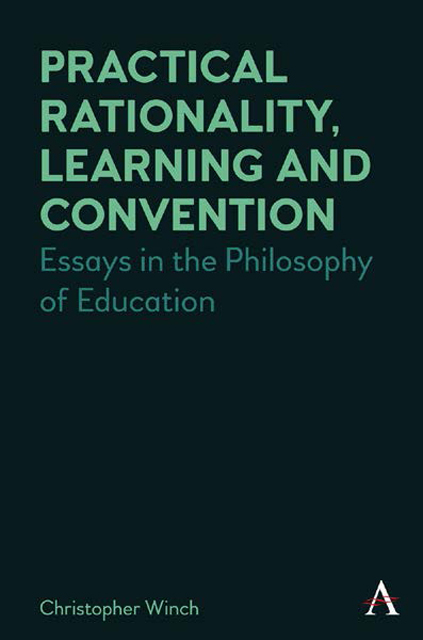Chapter Twelve - Learning How to Learn: A Critique
Published online by Cambridge University Press: 09 December 2022
Summary
So much is written about ‘learnacy’ or ‘learning how to learn’ (lh2l for short) and so little argued about what it actually consists in (if indeed the term lh2l does refer to anything distinct), that it is appropriate to examine the claim that one of the central aims of education should be the development of the ability to learn how to learn. Robert Dearden had already used this term in 1976 and in this paper, especially in the conclusion, I follow up some of his suggestions. The claim is essentially this; that if one learns how to learn then one can be an independent learner who can not only learn well at school but throughout life. Not surprisingly, lh2l is thought by some to be the central curricular aim of formal education. But do we really understand what is being claimed about this putative ability?
The Claim That We Are ‘Born to Learn’ and the Confusion between Capacities and Abilities
It is sometimes claimed that we are born with an innate drive to learn (Rousseau, 1762; Chomsky, 1988). The implication is that if we can harness that drive then we will become successful learners for life. But the claim itself is exceedingly vague. Is it a conative claim? Does it mean that we have a desire or impulse to learn? If so, then this might not be sufficient for learning, for wanting something is not the same as knowing how to get it. Is it a cognitive claim? Does it mean that we have an ability to learn? If so, then this also might not be sufficient for learning, for knowing how to do something is not the same as wanting to do it. In developmental theory, from Rousseau to Chomsky, the impulse to learn is understood as a biologically-based mixture of the conative and the cognitive, so educational progress should be guaranteed through our biological development if it takes place in appropriate conditions. In what immediately follows I will be discussing the cognitive rather than the conative claim.
It makes little sense to say that we are born with a generalised ability to learn, since it is far from clear what this would amount to.
- Type
- Chapter
- Information
- Practical Rationality, Learning and ConventionEssays in the Philosophy of Education, pp. 169 - 182Publisher: Anthem PressPrint publication year: 2022

